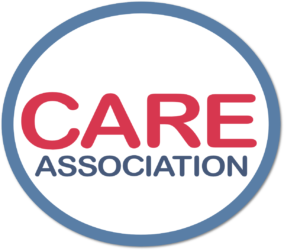May 14, 2019
Dear Supporters,
This long-overdue update on Care Association comes after many rainy days in San Francisco, and I don’t just mean precipitation. Other nonprofit directors weren’t joking when they advised me how long it can take to get a project off the ground. Unfortunately, our web project has run aground, for now anyway. Now I’ve got the tasks of researching and rewriting our strategy.
We Are Learning
In late 2018, we learned that most people are not the risk-takers required to launch a website that has never been done, one that connects property owners and prospective tenants so they can help each other. But we have not given up.
During this learning period, I also worked one-on-one with low- or no-income individuals to find housing and to support their mental health. Thus far, our greatest success has been with mental health support alleviating stress and anxiety with emotional resolution using body sensation identification, a process taught by our Secretary, Cedric Bertelli. I wish we could say we helped someone find a home, but the amount of effort it took to place one small family started to become a full-time job in itself. (We still hope to help this family find a home. If you know of one, please email me!)
Working on a New Strategy
Since we could not find enough participants to build the Care For Us demonstration website, the project went on the backburner. Today we are rewriting our strategy to include real property development to create affordable housing, which if all goes well may have incentives for investment (i.e., we will look for a loan unless an angel appears with $3.5M). Not enough homes are being built. And with my Urban Studies background and architecture experience, development seems like the best route to take.
Our new strategy also considers expanding our reach, offering pro bono emotional resolution services to those who are cost-burdened, especially those who face social microaggressions. Microaggression is subtle language denigrating a person because of a lack of social privilege. Upon reading Cornell University sociologist Richard Swedberg’s Principles of Economic Sociology, I am convinced that lack of confidence among low- and middle-income workers is hindering progress for affordable housing. But we can foster the confidence needed for people to find their own solutions to economic problems.
These changes will be reflected soon on our website.
Focused on the Same Goal
There is still a dire need to represent a population that struggles needlessly because of one simple problem: housing is too expensive. No one should be paying more than 30% of their gross income for shelter. Nor should anyone need to work more than 40 hours a week just to pay rent. Because of the need, we are pushing forward to find and implement solutions.
How to Help
There are many ways you can help us progress:
- Volunteer. We need help with business planning, strategy, web development, WordPress administration, marketing, real estate law, and community planning.
- Donate. Make a financial contribution with the button or to the mailing address at the bottom of this letter. If you’re in the Bay Area, donate unwanted clothes, furniture, or household items in good condition to Community Thrift Store on Valencia Street in San Francisco.
- Share. Follow us on Facebook, Instagram, and Twitter; and tell your friends about us. Read our blog. If our articles make sense, forward them on.
- Give Feedback. Comment on our Facebook page and Instagram posts. Send us a message. Maybe this newsletter raises your eyebrows, i.e., only $3.5M for development? (It’s only part of a long-term strategy.) We can use all the help we can get, and getting feedback is helpful.
- Provide Space. We are looking for locations where we can conduct one-on-one emotional resolution sessions, and where we can teach groups of about 8 to 10 people how to resolve difficult emotions on their own.
Achieving housing for all takes community effort on all levels — from government official to taxpayer to person on the street. Let’s make housing happen together.
Forever grateful,

Founder, CEO
Care Association
—
Care is kind.SM

